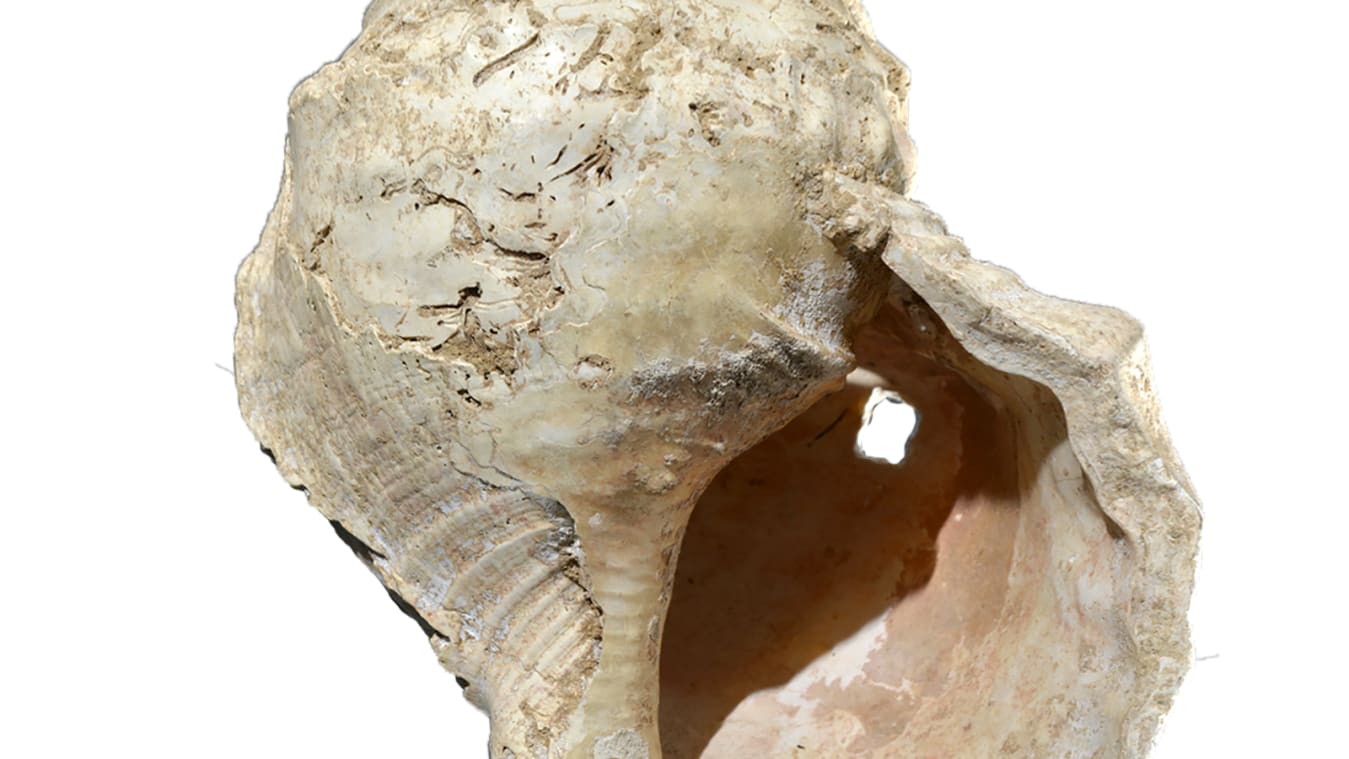Listen to the sound of an 18,000-year-old musical instrument

Credit: © Carole Fritz et al. 202
Listen to the sound of an 18,000-year-old musical instrument
Share
Scientists analyzing a conch shell believed to be the oldest wind instrument of its type in the world have released a recording of what it would have sounded like.
The
shell was largely overlooked when it was found at the Marsoulas Cave in
the Pyrenees mountain range in 1931, but researchers from France's
National Center for Scientific Research (CNRS); the Museum of Toulouse;
the University of Toulouse -- Jean Jaurès; and the Musée du quai Branly
-- Jacques-Chirac have released an audio recording as part of a new
study published Wednesday.

The people who made the instrument were probably hunter-gatherers. Credit: © Carole Fritz et al. 2021/Gilles Tosello
The
tip of the sea snail (Charonia lampas) shell is broken, forming an
opening 1.4 inches in diameter. The tip is the toughest part of the
shell, researchers said in a press release, so the break is not
accidental.
There
is also evidence of cutting, perforation and decoration using hematite,
a red pigment used in the cave paintings that make the Marsoulas Cave
famous.
Researchers
worked with a horn player to verify their hypothesis that the shell was
used to produce sounds, with the musician able to make sounds close to
the notes C, C-sharp and D.
The
fact that the opening is irregular and covered with an organic coating
led researchers to think that a mouthpiece would have originally been
attached.
The
presence of mouthpieces on other conch shells from around the world
adds weight to this interpretation, said Gilles Tosello, co-author of
the study and archeologist at the University of Toulouse.
Carbon
dating carried out on charcoal and bear bone from the same
archeological stratum as the conch shows the objects date from 18,000
years ago, according to researchers. This makes the shell the oldest
wind instrument of its type.
However, the people that made it didn't necessarily use the shell to make what we think of as music, Tosello told CNN.
"It
could have been used as a communication tool," he said, explaining that
it may have been used in rituals connected with art inside the cave.
Researchers
also found similarities with materials found in caves along the
Atlantic coast in northern Spain, lending weight to the idea that these
people were nomadic hunter gatherers who moved between the Atlantic
coast and the Pyrenees, Tosello said.
They
would have had to move around because they would have run out of
animals to hunt if they stayed in one place too long, he explained.
Researchers
will now work on an accurate 3D replica of the shell in order to find
out more about a small perforation, 0.4 inches in diameter, in its body,
Tosello told CNN. They will also investigate how far the sound produced
by the shell can travel.



No comments